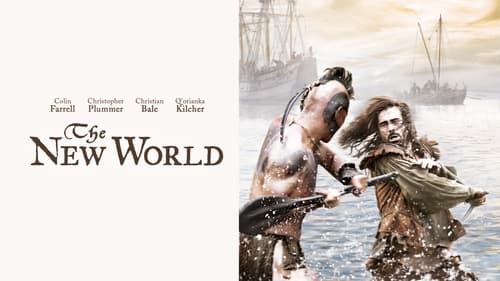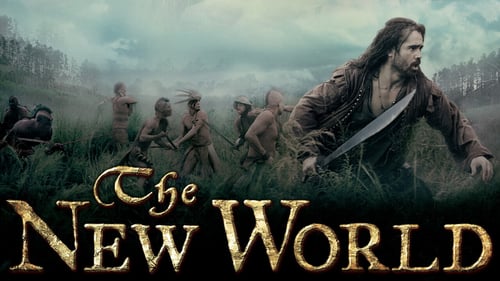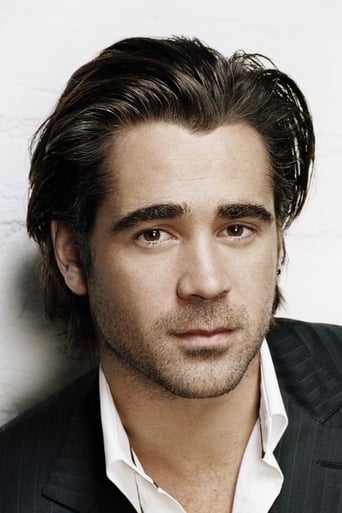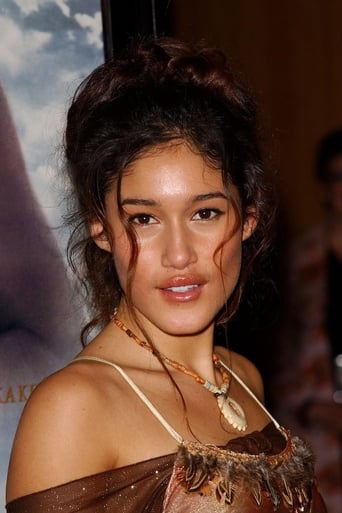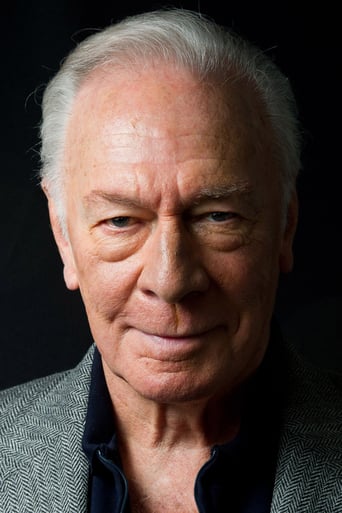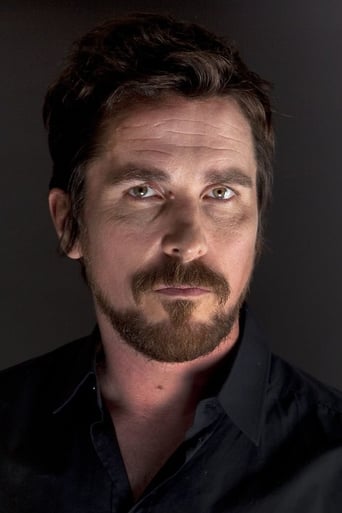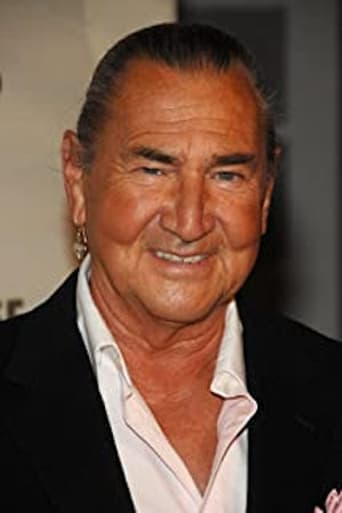CinemaClown
Beautiful, poetic & serene, Terrence Malick's fourth feature film is an elegantly crafted, lyrically narrated, exquisitely photographed & sincerely performed historical drama that brings a forgotten world to life with soothing grace & meticulous attention to detail, and tells the story of Pocahontas & England's colonization of the Americas in a meditative manner.The story of New World unfolds in the early 17th century and follows an explorer who attempts to negotiate a trade between the natives & settlers and has his life spared by Pocahontas, the tribe's chieftain's daughter. The two end up falling in love but when tension arises between the two clans and war breaks out, each side brands their own lover a traitor.Written & directed by Terrence Malick (known for Badlands, Days of Heaven, The Thin Red Line & The Tree of Life), the first hour of The New World finds the auteur painting a world without greed or corruption on the canvas and even in the most discomforting moments when things go awry & violent, Malick somehow manages to keep its calm & tranquilizing tone alive.At its core, The New World is an innocent love story between two people from opposite cultures, and the tenderness with which it is portrayed is the film's true strength. There are times when it wanders & meanders, as is the case with most of the director's works, but the romance shared between its key characters is what prevents it from losing its sense of direction.The lush locations expertly recreate the lost world the film's events take place in. Cinematography magnifies the richness of its surroundings with its controlled camera-work, fitting colour tones and accurate lighting. Editing is brilliantly carried out in the first hour but its 172 minutes runtime is felt afterwards. Sound is handled with precision while the background score is intermittently but finely utilized.Coming to the performances, the cast consists of Q'orianka Kilcher, Colin Farrell, Christian Bale & Christopher Plummer, with Kilcher impressing the most. Perfectly cast as Pocahontas, she is the very embodiment of her character and despite her inexperience, manages to carry the entire film on her shoulders. Farrell is just as compelling, Plummer does well with what he's given while Bale chips in with a restrained input.On an overall scale, The New World isn't a film that will strike the same chord with everyone. While some will appreciate the meditative approach & aesthetic eye with which this tale is brought to life, others will feel challenged & frustrated by its glacial pace & endless musings. The New World had my attention during the first hour, and Kilcher's nuanced performance is thoroughly engrossing but while I do admire the romanticism behind the project, I sure don't plan to return to it anytime soon.
James Hitchcock
During the 1970s Terrence Malick directed one excellent film, "Badlands", and one masterpiece, "Days of Heaven". After that he seemed to exile himself from the cinema for a long period, and it was twenty years before his third film, "The Thin Red Line", appeared. There then followed another period of silence, this time for seven years, before "The New World" came out in 2005.The film recounts one of the foundation myths of American history, the story of Captain John Smith and the Native American princess Pocahontas. Now although both Smith and Pocahontas were undoubtedly both historical figures, the traditional version of the story, telling how she saved his life and how the two then fell in love, may only be legend. The latter part of the story, however, dealing with her marriage to another English settler, John Rolfe, is based upon historical fact.Even though the romance of the two main figures may only be fiction, albeit a fiction hallowed by long tradition, Malick took great pains over historical details with regard to such matters as costume, weapons, tools and architecture, and shooting took place as close as possible to the site of the original Jamestown settlement in Virginia. He even went so far as to employ a linguist to reconstruct, as far as possible, the now-extinct Powhatan language which would have been spoken by the tribe to which Pocahontas belonged. In other respects, however, the film's accuracy has been faulted, in particular its advocacy of the now- fashionable idea that Native Americans were unselfish, peace-loving noble savages, quite innocent of the vices of the corrupt Old World. (In reality, Pocahontas' father owed his power and exalted position, a position which led the English settlers to regard him as a king rather than a mere chief, to his Powhatan tribe's superiority in warfare over their neighbours).Some changes to the historical record seem to have been made to make the characters more sympathetic. In reality Smith was not commanded by King James I to mount an expedition in search of the North-West Passage, but the scriptwriters must have needed an explanation for his decision to abandon Pocahontas and return to England, leaving word for her that he was dead; in the 17th century a royal command was something you disobeyed at your peril.The film is well acted, with notable performances from Colin Farrell as Smith, Q'orianka Kilcher as Pocahontas and (in a smaller but key role) Christian Bale as Rolfe. (Remarkably, Kilcher was only 14 at the time). The relationship between these three can be described as a sort of love- triangle because, although Pocahontas does not meet Rolfe until after she has been wrongly informed that Smith is dead, she still harbours feelings for her former lover. Both the main characters are torn by inner conflicts, Smith between his love for Pocahontas and his duty towards his king and country, and Pocahontas between her love for Smith and her inability to love her husband, whom she knows to be a good and kind man. Her inner conflict becomes all the greater when she realises that Smith is still alive.As in his first two films, Malick makes effective use of music, with Mozart's Piano Concerto No. 23 taking on the role that was played by Orff's "Gassenhauer" in "Badlands" and Saint-Saëns' "Aquarium" in "Days of Heaven". Although there are some attractive shots, I did not, however, find the film as visually attractive as its predecessors, especially "Days of Heaven" which is notable for its strikingly beautiful photography throughout. In my view, however, the film's main fault is that it is overlong and, in places, too slow-moving. Malick's original 150-minute version was later cut to 135 minutes, but even this seemed too long for a story which could have been told in two hours or less. (I understand that there is also a third, 172-minute version, which has never been shown in cinemas).The film did not do well at the Academy Awards, only receiving one nomination, but several critics hailed it as a masterpiece. Some of these praised the film in quite extravagant terms. Mick LaSalle of the San Francisco Chronicle said that it "contains some of the best film- making imaginable – some of it beyond imagining" and John Patterson of the Guardian confessed to literally weeping "tears of exultation". I know how these critics felt. I felt like that on watching "Days of Heaven", but "The New World" was never able to move me in the same way. 7/10


